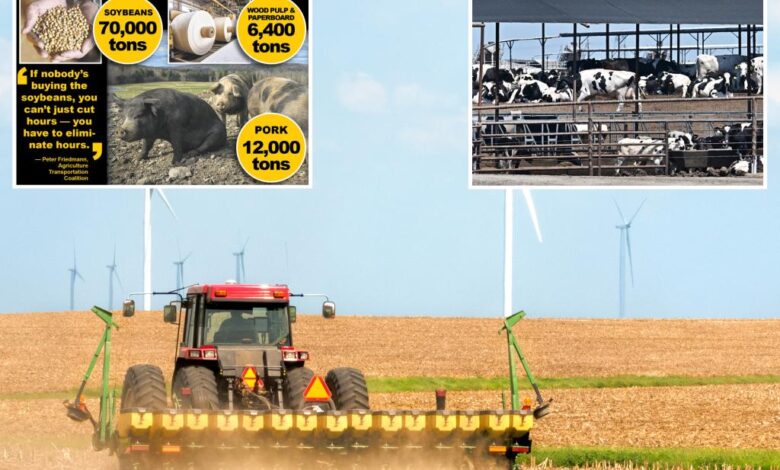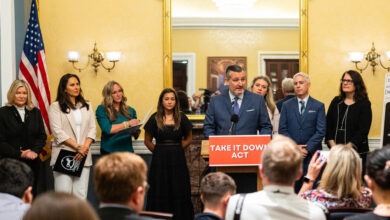US agriculture industry in ‘full-blown crisis’ as Trump tariffs shrink Chinese orders

President Trump’s Tariffs Spark Agricultural Crisis in the US
A trade group has reported that President Trump’s tariffs have plunged the US agricultural industry into a severe crisis. The cancellation of orders from China has resulted in farmers having to lay off workers or even close down their businesses.
China recently canceled its largest pork order since the COVID-19 pandemic, stopping a shipment of 12,000 tons of pork, as per the Department of Agriculture. Additionally, soybean orders from China plummeted from 72,800 tons to just 1,800 tons in a week, according to the USDA.
Wes Shoemyer, a farmer from Missouri, expressed concern over the uncertainty of finding foreign markets for his crops amidst the trade tensions. He mentioned that farmers are planting crops hoping for a viable export market.
Trump’s tariffs on Chinese goods, along with China’s retaliatory tariffs, have disrupted trade between the two nations. This has led to a significant increase in canceled sailings by Chinese vessels to US ports, resulting in a 44% decline in China to US vessel traffic compared to the previous year.
The repercussions of the canceled Chinese orders are expected to impact various sectors within the industry, from farms closing down to longshoremen being out of work due to canceled sailings. The ripple effect extends to truck drivers involved in transporting goods from ports.
While consumers may temporarily benefit from lower prices of produce at supermarkets, it signifies a larger issue of US farmers facing financial struggles and excess supply. Various exporters have reported immediate cancellations of orders, leading to logistical challenges and financial uncertainties.
Despite the challenges, some Chinese officials have expressed confidence in finding alternative sources for agricultural products like soybeans. US farmers, especially soybean growers, are bracing for the impact of losing a crucial market in China, which imported billions worth of agricultural goods from the US annually.
The ongoing trade tensions have exacerbated existing problems in the agricultural sector, with farmers across the country facing hardships. The uncertainty surrounding trade policies and market access has left many farmers in a state of crisis.
As the industry grapples with the fallout of trade disputes, farmers like Shoemyer are facing additional challenges, such as delayed payments for government contracts aimed at supporting sustainable agriculture practices. The lack of clarity and financial support has added to the distress of farmers already struggling to navigate the turbulent market conditions.
While the White House did not respond to requests for comment on the situation, the agricultural sector continues to grapple with the far-reaching consequences of trade tensions and tariff wars.





